August 24, 2023
8 Popular Types of Podcasts: Which One Is Right For You?
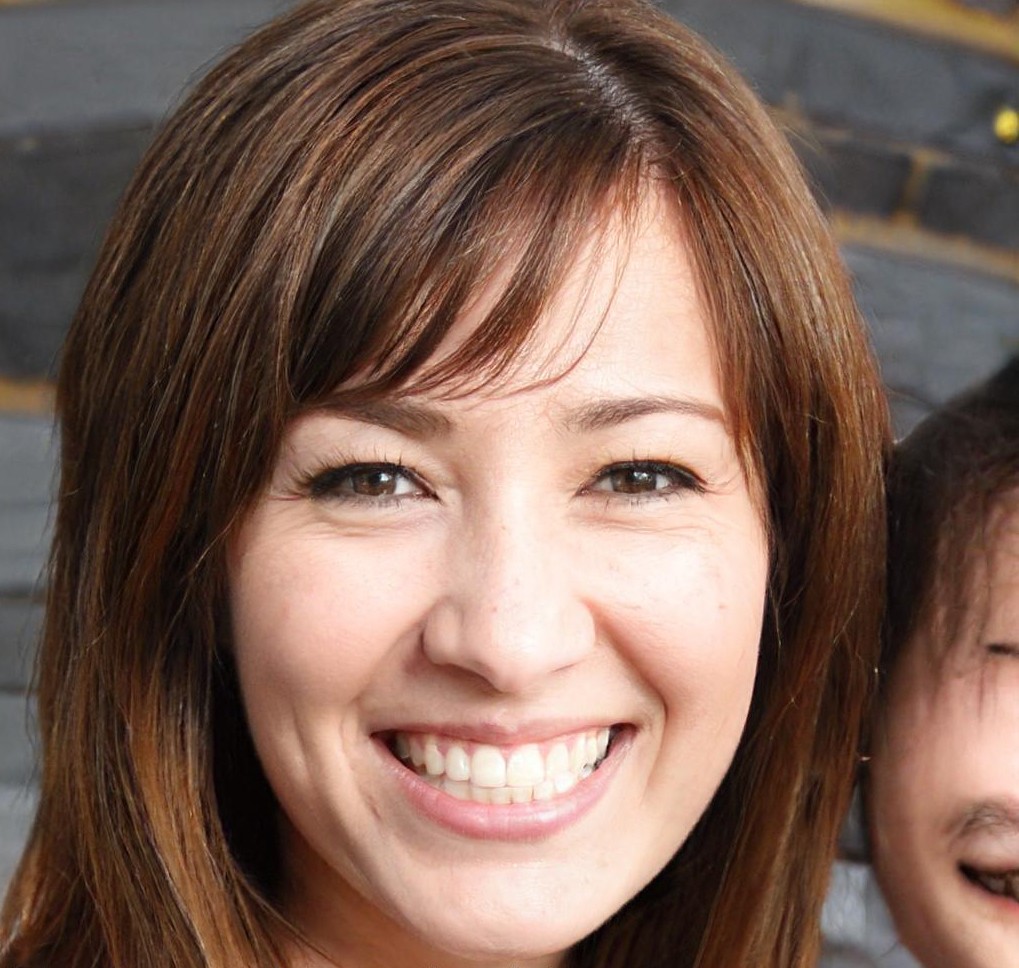
Eve
Ready to dive into the exciting world of podcasts? With a plethora of formats to choose from, finding the right fit for your show might seem daunting.
But fear not!
We’re here to help you navigate through eight popular types of podcasts, uncovering the pros and cons of each, so you can make an informed decision.
Let’s embark on a journey to discover what makes a captivating podcast and how to align your goals with the perfect format.
Short Summary
Discover the right podcast format to suit your goals, audience & strengths.
Analyze preferences, evaluate competitors & leverage personal style for success!
Experiment with formats and reap the rewards of a successful show!
Understanding Podcast Formats: Why It Matters
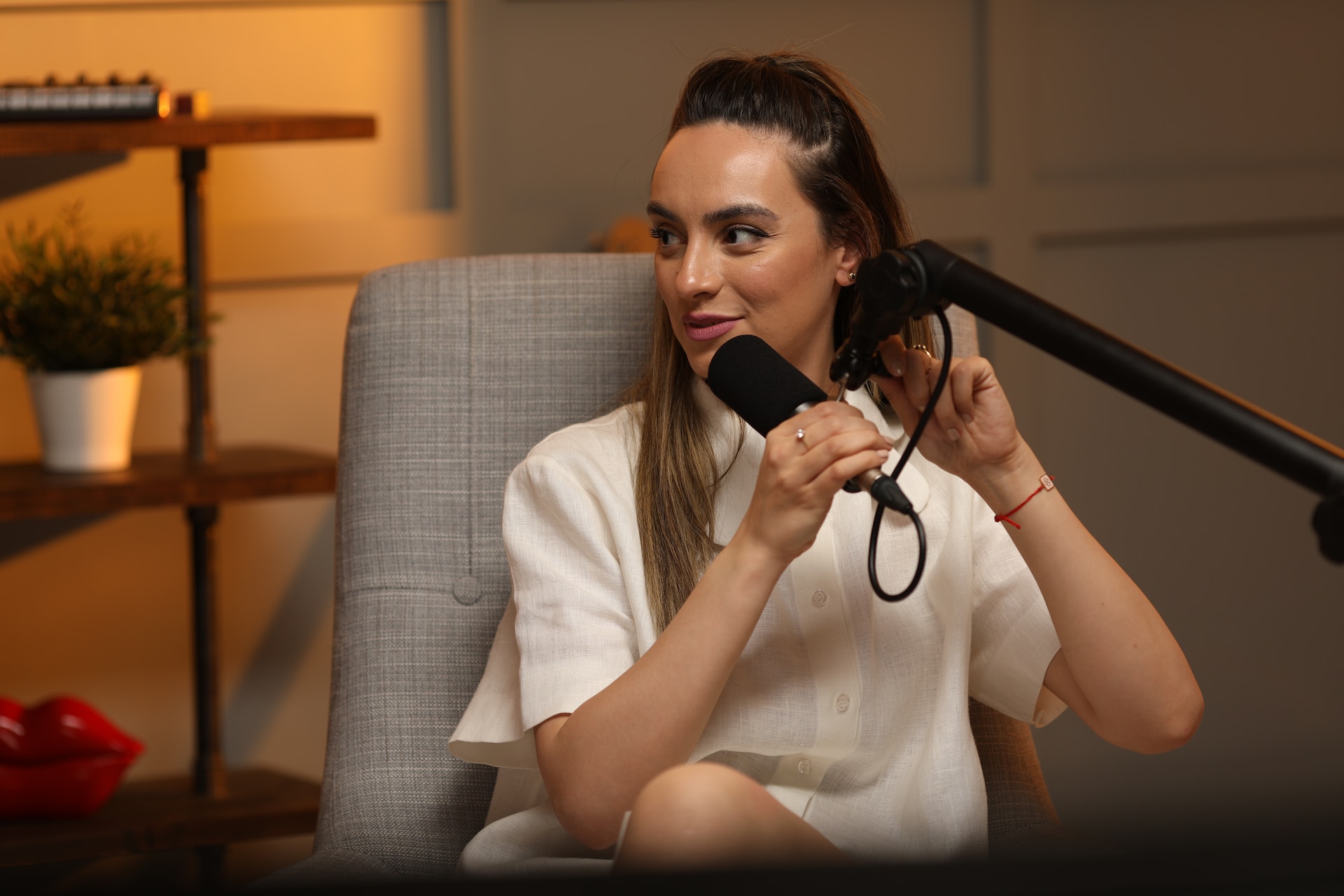
Having a consistent podcast format can be an incredibly useful tool to keep your listeners engaged, especially on Apple Podcasts where consistency is of utmost importance. It’s essential that this alignment with goals and quality still creates a manageable workload.
Let’s look at how goal-setting, maintaining the same style throughout each podcast episode and balancing work appropriately helps you craft successful podcast formats.
Once these basics are sorted out satisfactorily, planning content becomes easier as all types of podcast episodes stick to one fixed outline, resulting in happy audiences!
For example, if you run an interview podcast, having an intro, main content section, and outro is a simple yet effective way to structure everything, and keep it consistent for every episode.
Aligning Your Goals with Podcast Format
Finding the right podcast format for your show is much like finding a perfectly suited pair of shoes, it should fit seamlessly with your ambitions. If you want to exhibit what you know about an area, then perhaps a solo podcast will work best.
On the flip side, if one’s aim is to connect and attract new listenership, opting for an interview-style series featuring a different guest each week could be just what’s needed!
It’s essential that both your branded content and your chosen presentation method are complementary in order to provide consistent listening pleasure. Otherwise having incongruent style or goals would amount to something similar wearing sneakers at formal gatherings – pretty awkward indeed.
Consistency and Audience Expectations
Staying consistent with a weekly podcast format is the key to enticing people back and avoiding confusion. A uniform style of recording, such as an interview podcast set up, aids in making great first impressions that keep your listeners interested.
So when looking at varying your approach remember keeping it similar provides more clarity for potential new followers while continuing to capture already hooked audience’s attention again and again.
Balancing Workload and Content Quality
Finding the perfect balance between workload and content quality is fundamental for sustaining a successful podcast. To find that equilibrium, what kind of format should you use? A co-hosted podcast could be your ideal easy option. This would let you discuss topics with another host in the comfort of your home.
And don't worry about video quality. There are plenty of free ways you can make your video look good, whatever setup you're using. If you want to invest in yourself however, then you can when you know the costs of podcasting.
On the contrary to the above, when making a scripted nonfiction show, more effort may be necessary such as researching material related to it. One thing needs consideration though, being too specific or broad can cause imbalances that might become difficult to manage over time.
Try not to maintain any extreme levels while deciding on issues like type of topic and format for podcasts.
Exploring 8 Popular Podcast Formats

Now we're aware of the value of podcast formats, let’s take a better look at eight widely used ones including the interview format. From co-hosted conversational to hybrid and other types in between, like narrative nonfiction or fictional storytelling podcasts, there is an option for everyone.
Each has its own merits and drawbacks which should be carefully weighed before selecting what works best for your show’s vision, your audience expectations and most importantly – what plays on strengths!
By examining closely different popular kinds of podcast available out there it will help you find one suitable with all those aspects aligned perfectly. So why not dive right into exploring each distinct characteristic these have to offer?
#1 - Interview Podcasts
The interview podcast format offers a great way for podcasters to grow their network, with guests taking up the role of promoting it by mentioning and sharing on social media.
For those looking into this type of podcasting, some popular ones include The Joe Rogan Experience, Big Questions & Hard Choices hosted by Anna Sale, and F1: Beyond The Grid presented by Tom Clarkson.
A competent host is key in extracting interesting stories from these conversations as well as making sure that the show stands out. Thus luring more listeners to tune-in regularly.
#2 - Co-Hosted Conversational Podcasts
For a lively discussion that is sure to entertain, many turn towards panel or co-hosted conversational podcasts. Unlike solo podcasts, this type of show features two podcast hosts in dynamic roles which add unique perspectives and keep the dialogue engaging for listeners.
Popular examples of a good conversational podcast include Red Table Talk, My Therapist Ghosted me and The 2 Johnnies Podcast – all great sources of humor!
With this format providing an interactive experience on top of humorous content. It’s no wonder why these types of shows have gained such traction among audiences around the world.
#3 - Educational/Instructional Podcasts
Educational podcasts are a common podcast format ideal for anyone seeking to stay informed while on the go and grow their knowledge.
Examples of excellent ones to check out include Duolingo and Coffee Break (which focus on foreign language learning), The Happiness Lab with Dr. Laurie Santos providing science-backed happiness advice, as well as David McWilliams offering straightforward economic analyses.
Creating a podcast that imparts educational material requires much effort. It includes creating thorough show notes & resources in order to give valuable information to your listeners, making all that time spent definitely worthwhile!
#4 - Solo Monologue Podcasts
Solo podcasts are a type of audio content broadcast, where the host speaks alone about subjects they find captivating or everyday matters. Examples of these popular programs include Dan Carlin’s Hardcore History, The Gist with Mike Pesca on Slate and Flash Forward.
The advantages to having one person in control (both creatively and when it comes to scheduling) can be attractive. For podcast episode (or longer) listeners have to stay interested, which requires lots of charisma from the podcaster themselves!
Solo podcasting can be a lot of fun, and well worth having a go with since they give you complete freedom to say what you want!
#5 - Narrative Non-Fiction Podcasts
Narrative non-fiction podcasts are a popular podcast format that offers audio stories about real-life events, often based on investigative journalism or historic recounts.
In these podcast episodes presented by one or more hosts, listeners get taken through a riveting adventure that can either be told within each show or continued in subsequent releases.
Think about your favorite true crime podcast, by far one of the most popular podcast formats around today.
Examples of popular fiction podcasts include Your Own Backyard, Hollywood Con Queen and The Making Of A Detective – all require extensive research for production but result in an entertaining narrative sure to keep people entranced until the very end.
#6 - Fictional Storytelling Podcasts
Storytelling podcasts, like audio adventures through a fictional realm with creative editing and soundscapes, are an exciting form of media. Examples of a successful fiction podcast could be Deadly Manners which is akin to a murder mystery novel or The Black Tapes, if you want something spookier.
Crafting one of these storytelling podcasts takes some effort as it needs high-end production quality plus special effects and voice actors, but the payoff for listeners is they can escape into another reality.
#7 - Repurposed Content Podcasts
A repurposed content podcast provides an avenue to or written material by transforming it into audio. A few examples of this type of podcast are TED Radio Hour, The Moth and Rachel Maddow.
This form of media production is convenient as the majority of the work has already been done—all that remains is its reinterpretation for a podcast audience in order to keep it interesting and relevant.
#8 - Hybrid Podcasts
A hybrid podcast offers something special and distinct from ordinary offerings: a creative mix of different podcast formats, putting together the best elements for an entertaining listening experience.
Although it can take more effort to craft this type of content than just using one format exclusively, hybrid podcasts are worth all that energy due to their potential impact on audiences.
Feeling inspired? Ready to start your podcast? Don't forget to check out our checklist for starting a podcast!
Tips for Choosing Your Ideal Podcast Format
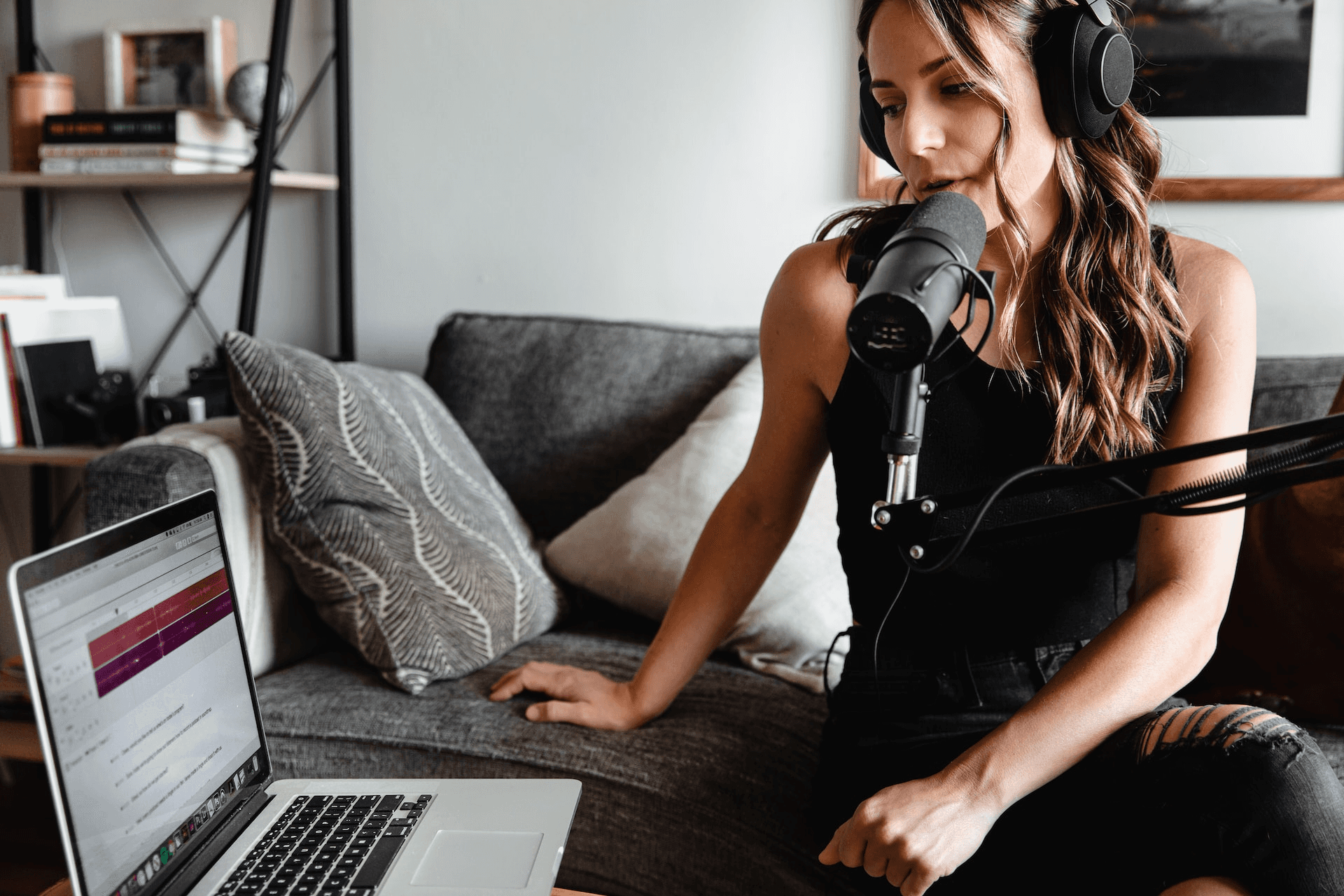
After surveying the eight prominent podcast formats, let’s discuss a few strategies for deciding which one works best for your program.
Examining target listeners’ tendencies, looking at what other broadcasters are doing in their podcasts and utilizing individual talents can all be helpful when selecting a format that fits with your objectives as well as captivates audiences with content tailored to them while emphasizing your specific traits as host.
Weighing these factors will guarantee that the chosen podcast structure of your podcast ticks all those boxes.
Analyzing Audience Preferences
To ensure your podcast follows the interests and anticipations of your audience, it's vital to assess their tastes. This can be accomplished through analyzing website statistics and social media activity, detecting what they enjoy doing as well as learning about their level of understanding, sentiments, and values.
Using this data allows you to craft a podcast that will satisfy them while drawing in new listeners again each time.
Taking care when inspecting listener preferences helps develop an entertaining show that not only amuses but also provides knowledge and encourages more dialogue among viewers. This is how you grow a community fast!
Evaluating Competitors' Formats
Studying how other podcasts in the same niche are formatted, structured, and engaging with their listeners can provide insight into potential areas of differentiation for your own podcast.
Analyzing what works (and doesn’t work) will enable you to create an audio experience that stands out amongst all others and appeals to your targeted audience.
Don’t be afraid to use competitors’ approaches as a starting point – it could help form an interesting format that sets yours apart from the rest!
Leveraging Personal Strengths and Style
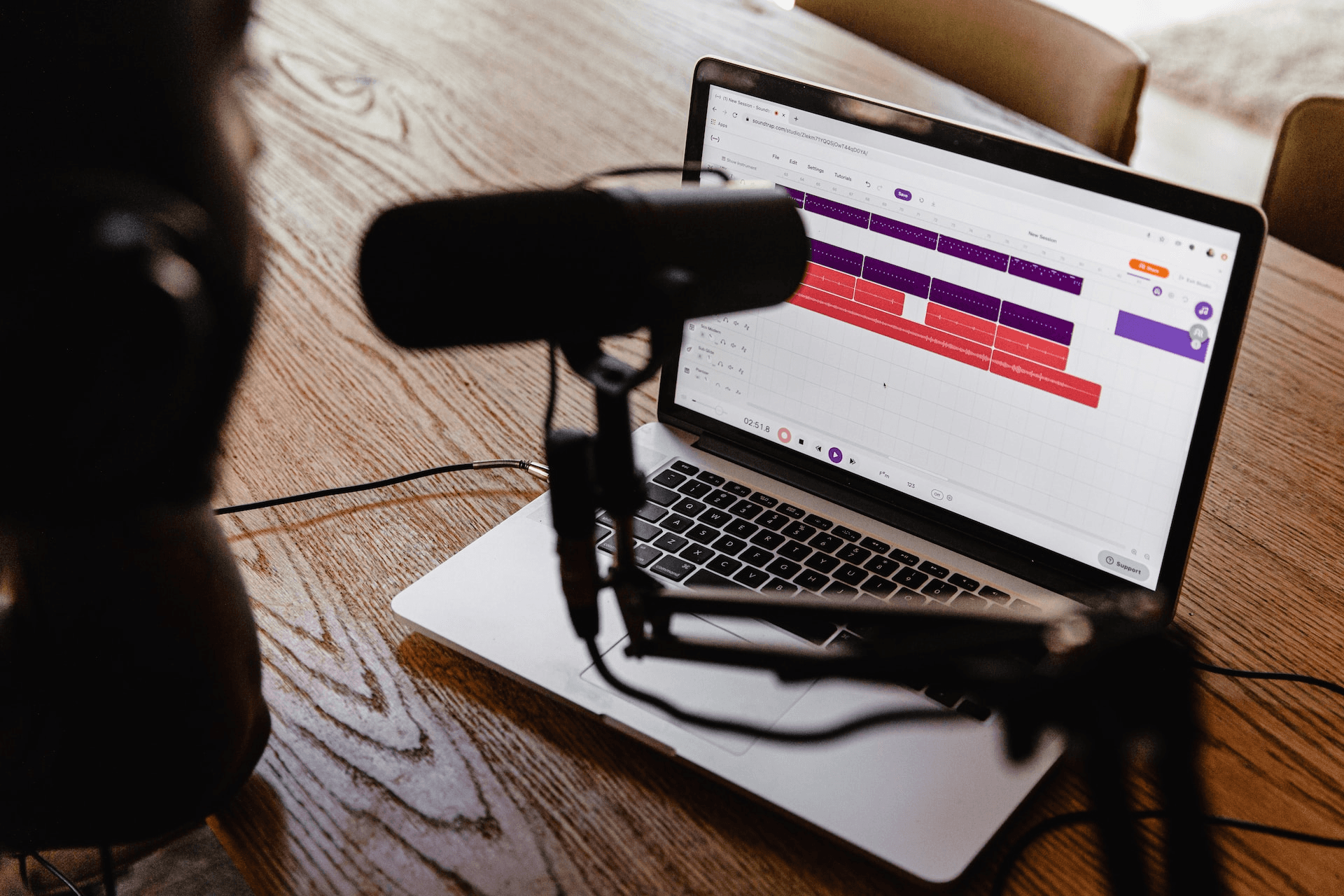
When selecting a podcast format, it’s paramount to reflect on your individual skills and approach. Using your exceptional capabilities, you can assemble an interesting program that highlights what you bring to the table as host.
Take into account your interests, know-how and way of interacting with others when deciding upon which style best suits the recording.
By utilizing all that makes up who you are in this regard, you will result in a genuine podcast keeping both yourself and those listening entertained.
Adapting and Experimenting with Podcast Formats
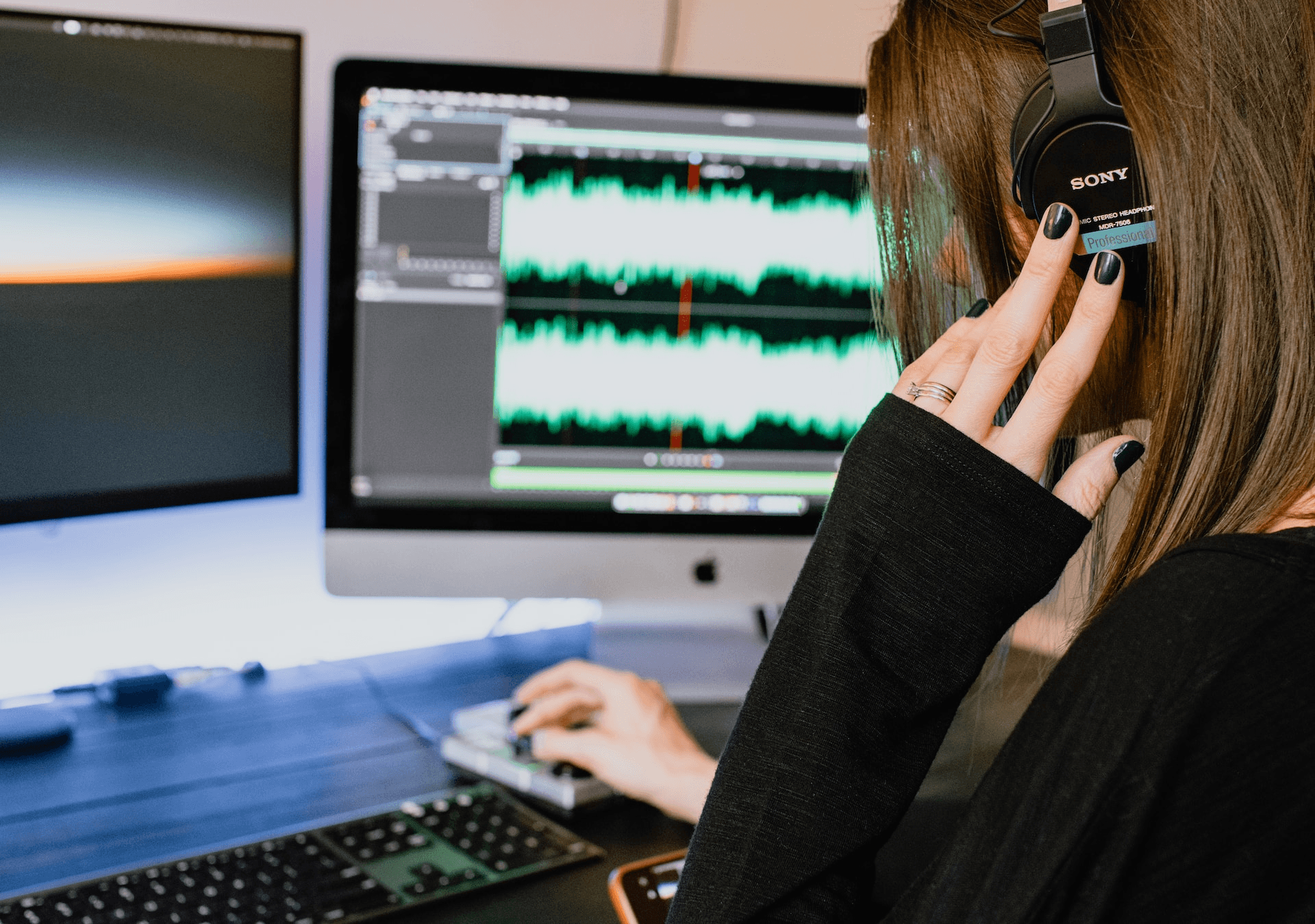
Now you're aware of the various podcast formats available and which one to opt for, it is time to evaluate how experimenting with these formats can be beneficial. Adapting your approach allows you to keep things interesting, extend reachability, increase engagement, and stay ahead in this competitive industry.
To give some creative inspiration let’s discover what advantages format adaptation provides us along with a few cases where mixing up podcasts worked out effectively!
Benefits of Format Adaptation
By taking the time to experiment and embrace podcast format adaptation, many benefits can be reaped.
Among them are distinguishing your content from others, providing a dependable listener experience while also giving structure to what you create, allowing for full control over its contents as well as easy scheduling with visuals in video podcasts making it all look more appealing.
Ultimately, this strategy makes it possible for a podcast host to keep their audiences interested and get noticed among other similar shows.
Successful Examples of Format Changes
Podcasts can become more successful by experimenting with various formats, such as from a solo show to having co-hosted conversations. This way they are able to keep their content interesting and relevant while showcasing the hosts’ particular abilities in order to reach new audiences and engage with your new community.
So don’t be afraid of trying out different podcast styles.
After all, this is how your podcasts will stay refreshing and true to yourself as a host!
Summary
When creating a successful podcast show, it is essential to choose the correct podcast format. To do so, assess your target audience’s preferences and analyze similar podcasts’ formats before deciding which type of podcasts best reflects you as an anchor and stands out in the market.
Taking these steps will ensure your unique ability shines through on this exciting sonic journey!
Frequently Asked Questions
What kinds of podcasts are popular?
Podcasts come in a plethora of styles, including True Crime, Business, Self-improvement Comedy, Sports, News History, and interview postcast formats. Whether your interest is comedy or business, there’s certainly something that will pique your curiosity!
With such extensive offerings, it seems almost impossible to be disappointed with this form of media.
Can you name 3 different podcast styles?
When it comes to podcasts, there are seven popular formats available for both education and entertainment - Interviews, Narratives, Panel Discussions, Solo shows, Documentaries, Reviews as well as roundtable podcasts. From informative educational options to fun stories – the choice is up to you!
How can I analyze my audience's preferences?
Exploring analytics from your website and social media can help you determine the interests, familiarity with a topic, attitudes, and values of your target audience. This information is invaluable when creating content that will resonate with them. Analyzing such data allows you to tailor pieces specifically designed for their preferences.
How can I evaluate competitors' podcast formats?
Analyzing the podcast formats employed by other podcasts can be beneficial in understanding how to engage with an audience. Pay close attention to any distinctive features or strategies that others are using and apply them appropriately for your own show.
Listening closely will provide insight into what makes these podcasts successful, allowing you to build a similar connection with your podcast listeners.
What should I consider when choosing a podcast format?
In order to have a successful and engaging podcast, it’s important to consider audience tastes, weigh up against other similar ones in the market place and use your own individual strengths. Choosing the right podcast format is essential for making an impact.



